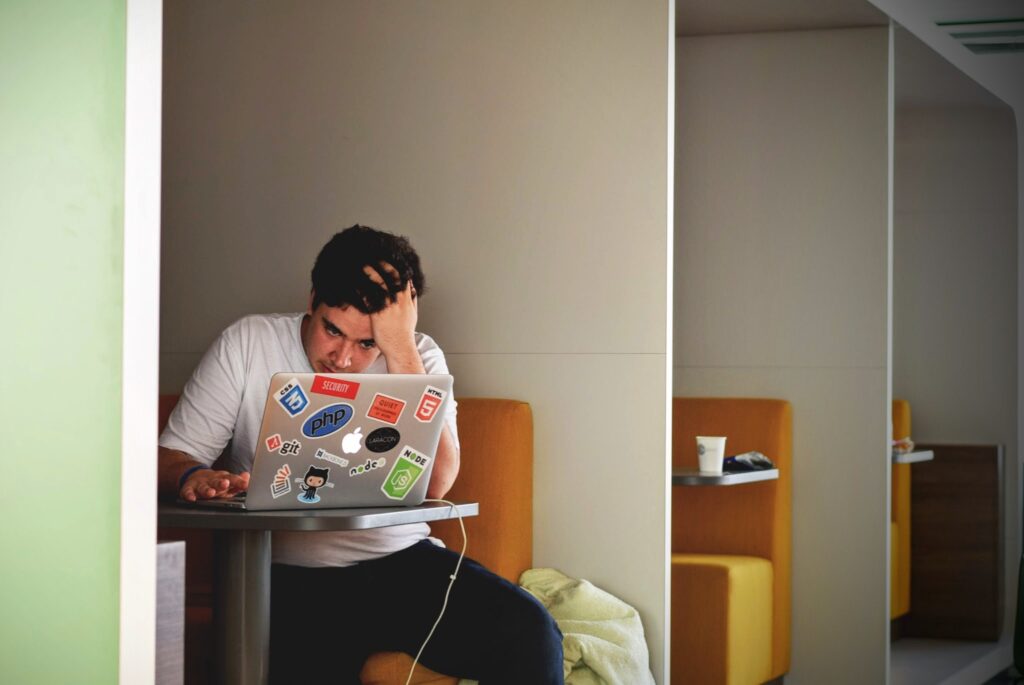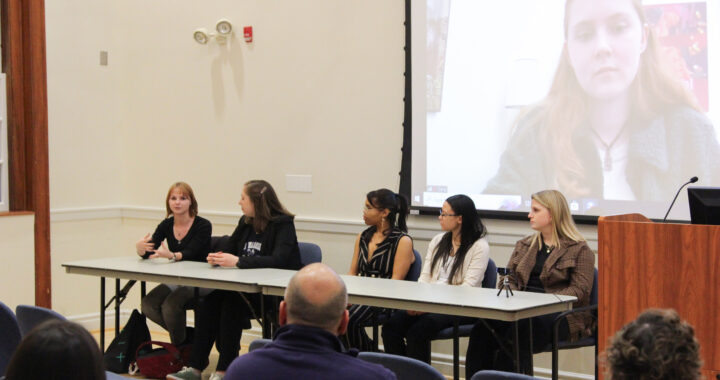Students navigate mental health in isolation
4 min read
The isolation and social distancing from the COVID-19 pandemic can be detrimental to students' mental health. | Tim Gouw, Unsplash
By ELLA KRYGIEL
Staff Writer
UMW’s reopening has allowed students the opportunity to return to campus; however, many students have felt isolated and depressed as a result of the social-distancing guidelines. For many, these restrictions have exacerbated their already existent mental health issues. The Talley Center is a resource for struggling students, as they continue to hold appointments online for both residential and non-residential students.
Like many other things experienced during the COVID-19 pandemic, virtual appointments can be challenging.
“It can be harder to gauge someone’s body language, which is a big issue,” said sophomore biology major Caitlyn Knittig.
According to a study by Dr. Albert Mehrabian of Columbia University, 93 percent of communication is non-verbal, and 55 percent of non-verbal communication is body language. Talley Center Director Tevya Zukor said that the lack of non-verbal communication can make virtual appointments more difficult.
“So much of our work is non-verbal,” said Zukor. “It’s how does someone react when you say something or when they’re talking.”
Some students have also experienced the challenges of virtual appointments.
“It is not as beneficial to me as actually being in person because the face to face interaction makes it easier for me to talk about my needs and struggles,” said junior and historic preservation major Cosette Veeder-Shave.
The lack of face to face time isn’t the only struggle some students experience with virtual appointments. For some, the lack of privacy at home or in their dorms can be a challenge.
“I’ve talked to students, literally, they were still living at home, and they went into a closet to get privacy to talk. I did not ever think in this line of work, I’d be talking to a student inside their closet,” Zukor said.
Despite some of the challenges of virtual appointments, they have proven helpful to some students.
“A virtual [appointment] is much more relaxed. And if something is going on I can easily leave, and do something. Sometimes being near a group of people can be causing anxiety,” Knittig said about group sessions. Being able to have a “safe space” as Knittig describes can be comforting for those who are dealing with anxiety. In that regard, virtual appointments can offer opportunities for some that might have found in-person appointments difficult.
“Someone who has debilitating anxiety to the point that they struggle to leave their room could still be able to meet with a clinician or have a session and get treatment,” said Zukor.
While social connection during these times can be difficult, there are ways students can stay connected with friends.
Veeder-Shave emphasized the importance of reaching out to others. “I’ve been more intentional about talking to and spending time with my friends, since if I’m not intentional, I can get up in my head and [feel] more isolated,” she said.
Zukor said that making plans can give students something to look forward to. “It’s important to have the sort of things you can hang your hat on. That idea of ‘Oh great, every Wednesday I know that’s what me and my friends get together virtually for movie night so I’ve got something that I know is coming up, something I’m still looking forward to, and something that occupies my time in a different way than academics,’” Zukor said.
Knittig does something similar with her long-distance friend Coral, who lives in Georgia. “We’ve had phone calls for five hours straight. We’ll be doing something, like, I’ll be playing minecraft on my computer, I’ll be doing homework, and, you know, it’s someone there to say, ‘bless you’ if you sneeze,” she said.
Veeder-Shave stays connected with loved ones.
“Some of my friends and I began writing letters to each other during quarantine and I’ve kept that up at UMW, especially with friends who remained home. I try to spend time with my friends at least once or twice a week, and I Facetime or Zoom call others often,” Veeder-Shave said.
Zukor tries to instill in students that they are not alone.
“One of the things that we’re reminding people to do is that again right the idea of just because we have to be physically distant from people for safety, does not mean we have to be emotionally disconnected,” Zukor said. “The feedback we’ve got through students is again they really appreciate the opportunity to continue to meet, because, really, in the mental health world it is really hard to find people, even in private practice who are seeing people face to face right now.”
Veeder-Shave agrees.
“You are not alone,” she said. “You will get through this, and you are important.”











